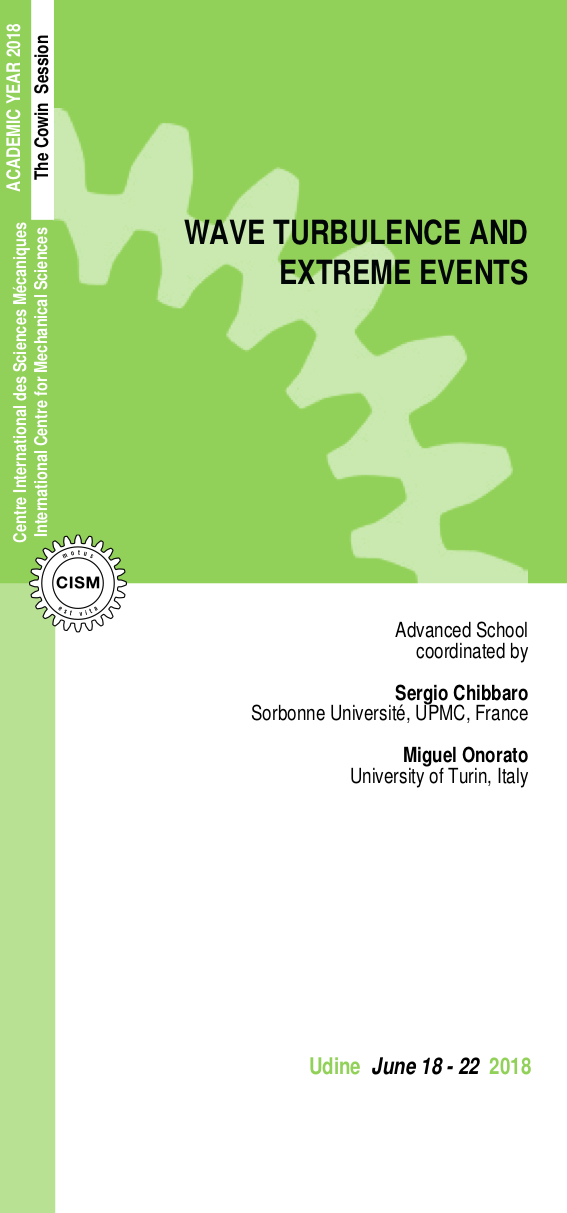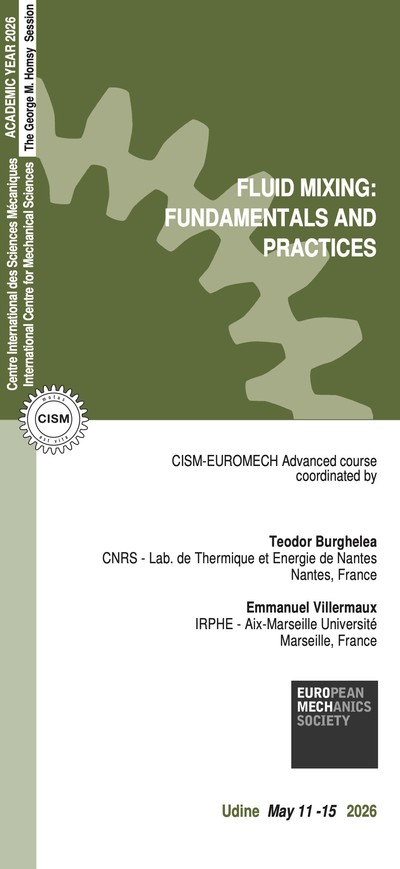Nazarenko, Sergey. Wave turbulence. Vol. 825. Springer Science & Business Media, 2011.
Zakharov, Vladimir E., Victor S. L'vov, and Gregory Falkovich. Kolmogorov spectra of turbulence I: Wave turbulence. Springer Science & Business Media, 2012.
Vulpiani, Angelo, et al. Large Deviations in Physics. Lecture Notes in Physics, Berlin Springer Verlag. Vol. 885. 2014.
Onorato, Miguel, Stefania Residori, and Fabio Baronio, eds. Rogue and shock waves in nonlinear dispersive media. Vol. 926. Springer, 2016.
Randoux, Stéphane, et al. Nonlinear random optical waves: integrable turbulence, rogue waves and intermittency. Physica D: Nonlinear Phenomena 333 (2016): 323- 335.
2 lectures on: The interplay between extreme/rare events in turbulence and wave turbulence will be discussed; the lectures will include a brief introduction to some probability concepts for turbulence.
6 lectures on: These lectures are intended to analyze the theory of turbulence in general and wave turbulence in particular. Kolmogorov turbulence as well as refined version of the theory will be presented. Then, starting from introducing the general formalism for Hamiltonian systems, the theory of Kolmogorov-Zakharov cascade for wave-turbulence will be also discussed. Some general aspects of irreversibility will be discussed in the spirit of field-theoretical anomalies.
4 lectures on: The course will tackle some technical aspects in fluid mechanics phenomena in the context of wave turbulence. A particular attention will be paid to asymptotic multi-scale methods and on the phenomenological description of the theory. Then, the lectures will focus on wave turbulence in elastic media by discussing both the theory and some numerical and experimental applications. Recent development and extension of this theory towards strong turbulence will also be discussed.
6 lectures on: A general introduction to wave turbulence and its formalism will be presented. The role played by the wave kinetic equation and its non-equilibrium solutions will be discussed. The challenges for the future investigations as well as the open issues will be addressed at the end.
2 lectures on: The application of the wave turbulence theory to ocean waves will be discussed. The intriguing phenomenon of rogue waves in the ocean will be presented, including lab and field data.
5 lectures on: The lectures will present the types of turbulence arising in superfluids and Bose—Einstein condensates. Using mainly the Gross-Pitaevskii equation, the different wave turbulence regimes will be derived and compared to the most recent experimental and numerical results. Strong turbulence states occurring in the presence of quantized vortices will be also discussed, together with turbulence developing when Kelvin waves propagating on the vortex filaments interact.
6 lectures on: The course will discuss the most recent research on nonlinear random waves in the context of nonlinear optics. In particular, the very recent development of ultrafast measurement techniques will be explained. Experimental and theoretical results will be discussed in the framework of wave turbulence and integrable turbulence. In particular, the phenomena of rogue waves and intermittency in integrable turbulence will be described.
* Italian VAT is 22%.





